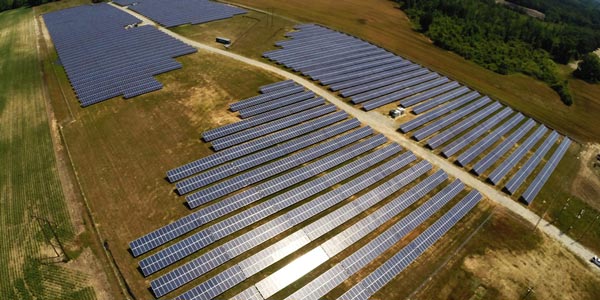By Michael Brooks
FERC on Thursday declined to grant a solar developer’s petition to enforce the Public Utility Regulatory Policies Act in Montana, where state regulators in June suspended a utility’s tariff for qualifying solar facilities above 100 kW (EL17-5).
As a result, solar developer FLS Energy can sue the Montana PSC or NorthWestern Energy in federal court, if it chooses.
But FERC did find that the Montana Public Service Commission violated PURPA by requiring that qualifying facilities have power purchase agreements and interconnection agreements with utilities to form a legally enforceable obligation.
The Montana PSC voted 3-2 to suspend NorthWestern’s tariff, finding that the avoided cost rate the utility was required to pay QFs was too high. The PSC grandfathered in facilities that had completed their agreements prior to the date of the order, June 16.
In its complaint filed in October, FLS said it had completed PPAs, but not interconnection agreements, for 14 QFs in the state. It accused NorthWestern of slow-walking the interconnection process while it lobbied the PSC for the tariff suspension.
As a result of the suspension, the North Carolina-based company said it stands to lose $750,000, as it would have to negotiate new PPAs with NorthWestern, likely at a lower rate.
Under PURPA, utilities are obligated to purchase electricity from QFs, but each state can determine when a legally enforceable obligation begins, as long it does not conflict with FERC’s regulations.
“We find that, just as requiring a QF to have a utility-executed contract, such as a PPA, in order to have a legally enforceable obligation is inconsistent with PURPA and our regulations, requiring a QF to tender an executed interconnection agreement is equally inconsistent with PURPA and our regulations,” FERC said. “Such a requirement allows the utility to control whether and when a legally enforceable obligation exists — e.g., by delaying the facilities study or by delaying the tendering by the utility to the QF of an executable interconnection agreement.”
FERC’s order did not comment on the merits of the PSC’s suspension itself, which FLS had also requested. The commission last month tossed out the same complaint by solar advocates, saying only QFs can seek PURPA enforcement. (See FERC Rejects Complaint on Montana Solar; 2nd Case Pending.)
In a footnote, however, FERC said, “When a state commission believes that a previously determined avoided cost rate is no longer an accurate measure of a utility’s avoided costs, the appropriate response is not to establish a standard for a legally enforceable obligation that is inconsistent with PURPA and the commission’s regulations under PURPA, but instead to determine a new avoided cost rate that better reflects the utility’s avoided costs.”
“This is a great win for our company and the QF community,” Steven Levitas, vice president of business affairs and general counsel for FLS, said in an interview. “We were confident that the Montana commission’s [legally enforceable obligation] was inconsistent with PURPA.”
Levitas said that the company hopes the PSC will change the standard to comply with PURPA. Otherwise, he said, the company is prepared to take it to court.
FERC did not address FLS’s accusation that NorthWestern violated interconnection procedures, saying that, as a Federal Power Act matter, it was beyond the scope of the complaint.





